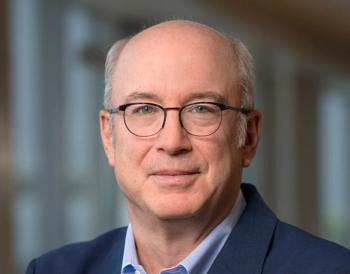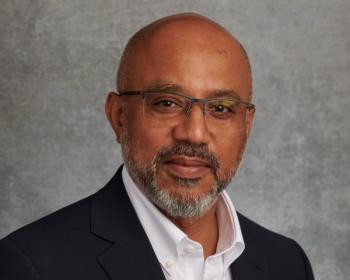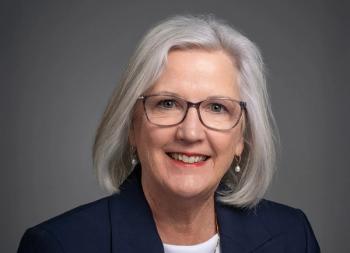
Aspirus Health CEO Matt Heywood talks about the system’s rapid growth
In an interview with Chief Healthcare Executive, he discusses the planned merger with St. Luke’s in Duluth, buying several hospitals from Ascension and expanding care in rural areas.
Even as many hospital leaders have put the brakes on plans to merge or acquire other providers in the past few years, Aspirus Health has grown substantially during the COVID-19 pandemic.
In 2021, the Wisconsin-based system purchased seven hospitals from Ascension Health. In July, Aspirus signed a letter of intent to acquire St. Luke’s in Duluth, Minn., a system operating two hospitals and dozens of healthcare sites in northeastern Minnesota, northwestern Wisconsin, and Michigan’s upper peninsula.
Matt Heywood, president and chief executive officer of Aspirus Health, says managing such growth can be challenging. But in an interview with Chief Healthcare Executive®, Heywood stresses the importance of planning properly and seizing opportunities when they arise.
“In today's environment, you need to be able to take action when action is available to you,” Heywood says. “And if it fits what's right and what you need to do, you need to be prepared, even in this tough environment, to take those actions.”
- Read more:
Healthcare mergers: Expecting more in 2024
Since taking over as CEO in 2013, Aspirus has grown from a $600 million organization to a system that will have $2.5 billion in revenue, after the completion of the St. Luke’s acquisition. Aspirus hopes to wrap up the deal in early 2024.
Aspirus operates 13 hospitals in Wisconsin and four hospitals in Michigan. Heywood says he has focused on expanding Aspirus’ rural healthcare model and bringing more healthcare options into communities.
‘Secret sauce’
When he became CEO a decade ago, Heywood says system leaders worked to define the type of system that Aspirus wanted to be in the future.
For Aspirus, bringing high quality care to more locations in rural communities has proven to be the system’s “secret sauce,” Heywood says.
Now, Aspirus is trying to expand its capabilities into additional, adjacent markets, and that’s why he sees St. Luke’s as a perfect fit. Heywood says Aspirus has been talking to St. Luke’s for years.
Heywood says he’s excited about the opportunity for St. Luke’s to expand care options outside of Duluth. He also said the organizations have strong alignment in their vision.
“We both are very committed to rural healthcare,” Heywood says. “We're very committed to high quality, and we're very committed to making sure we bring services locally to the communities that are outside of Duluth, just as much as Duluth. And that's our model here. We don't want you to have to travel to Wausau for some basic services. We want to bring those services out into the community.”
“So St. Luke's definitely, I think, saw that same alignment with us, and they saw how we were delivering it, and they saw how we could help them come in and deliver that opportunity to their communities and their organization,” Heywood adds.
Just as he’d been looking at St. Luke’s, Heywood had been interested in Ascension’s hospitals in Wisconsin for years.
“When they became available for us to purchase, we wanted to purchase them as fast as we could because they fit our model,” Heywood says. “They help build out our model.”
The integration of the Ascension hospitals over the past two years has been “very successful,” he says.
Heywood says that the acquisition of the Ascension hospitals has been key to expanding the Aspirus’ model, offering contiguous assets and more scale to share services across hospitals and operate more efficiently.
He also points to having financial and operational rigor to ensure that the system is able to “take those opportunities when they arise.”
Mergers in Wisconsin
Hospital mergers slowed during the COVID-19 pandemic, but
Two Wisconsin-based systems,
Two other systems in Wisconsin,
Heywood says the recent uptick of mergers in Wisconsin reflect larger trends of
“I think some of the healthcare leaders here see those general headwinds,” Heywood says. “They've seen the uniqueness of the Midwest and how it's got an even more challenging environment during those headwinds, versus the South, which is growing and has maybe more commercial business.”
“You're going to have to be as cost effective and as operationally effective as you can be,” he says, adding, “The healthcare entities are hoping to get more efficient with a partner that's nearby.”
As Aspirus has grown, Heywood says building up the organizational culture, and maintaining it through the acquisitions, has perhaps been the trickiest part.
“You've got to have team members that know how to do both the daily work and help bring new parties on, bring them into our culture and not have your culture get diluted, or drift and the model of care that you're trying to build drift,” he says. “So that's been, I think, our biggest challenge.”
When asked if Aspirus is looking at potentially acquiring other hospitals, Heywood says there are no immediate plans. But he wouldn’t discount the possibility in the future.
“Never say never,” Heywood says. “I would say we're only looking right now at St. Luke's, and the team thinks that's going to be a lot of work as it is, let alone adding something else to the plate. But I'll never say never on that one.”






























